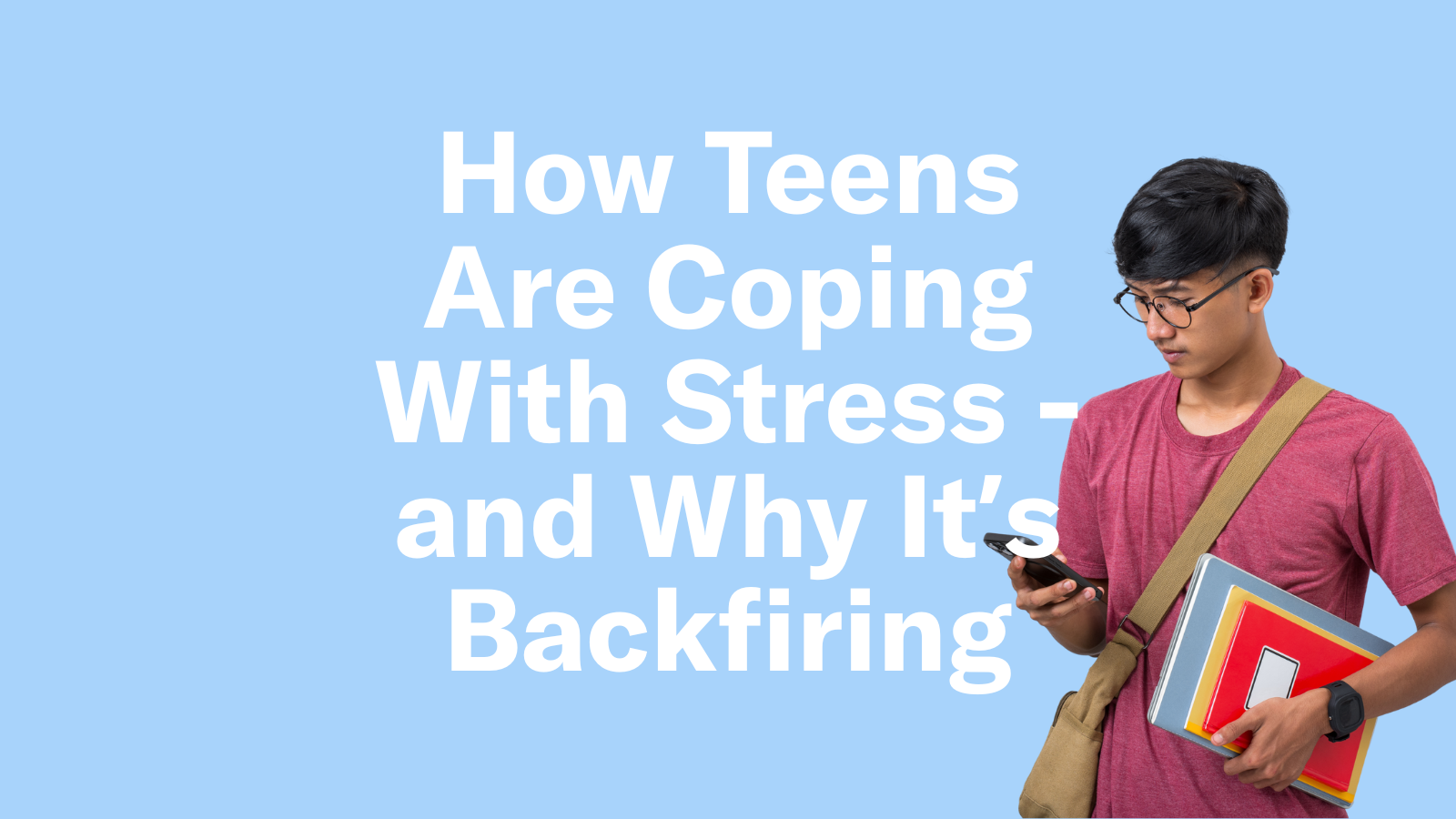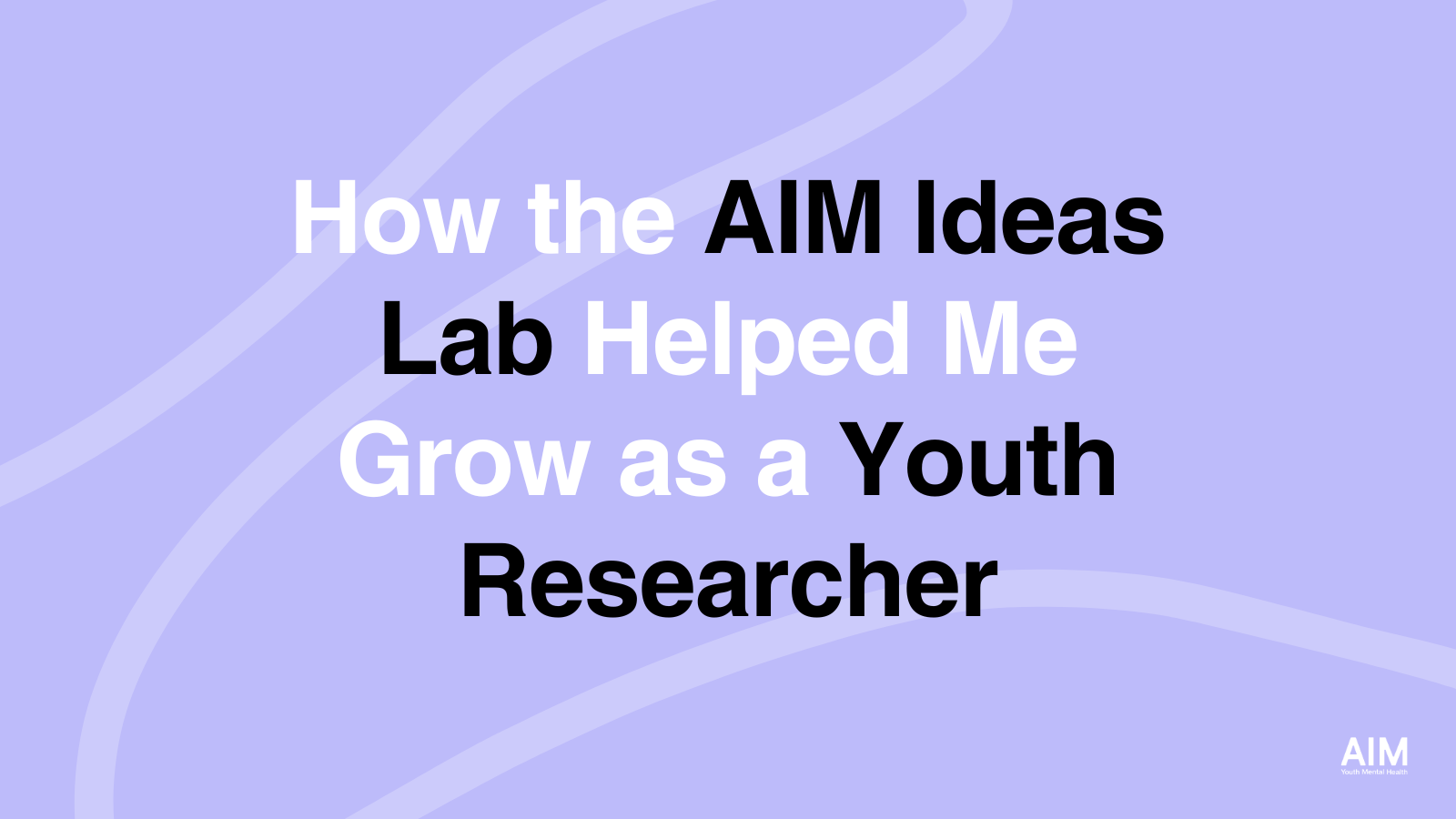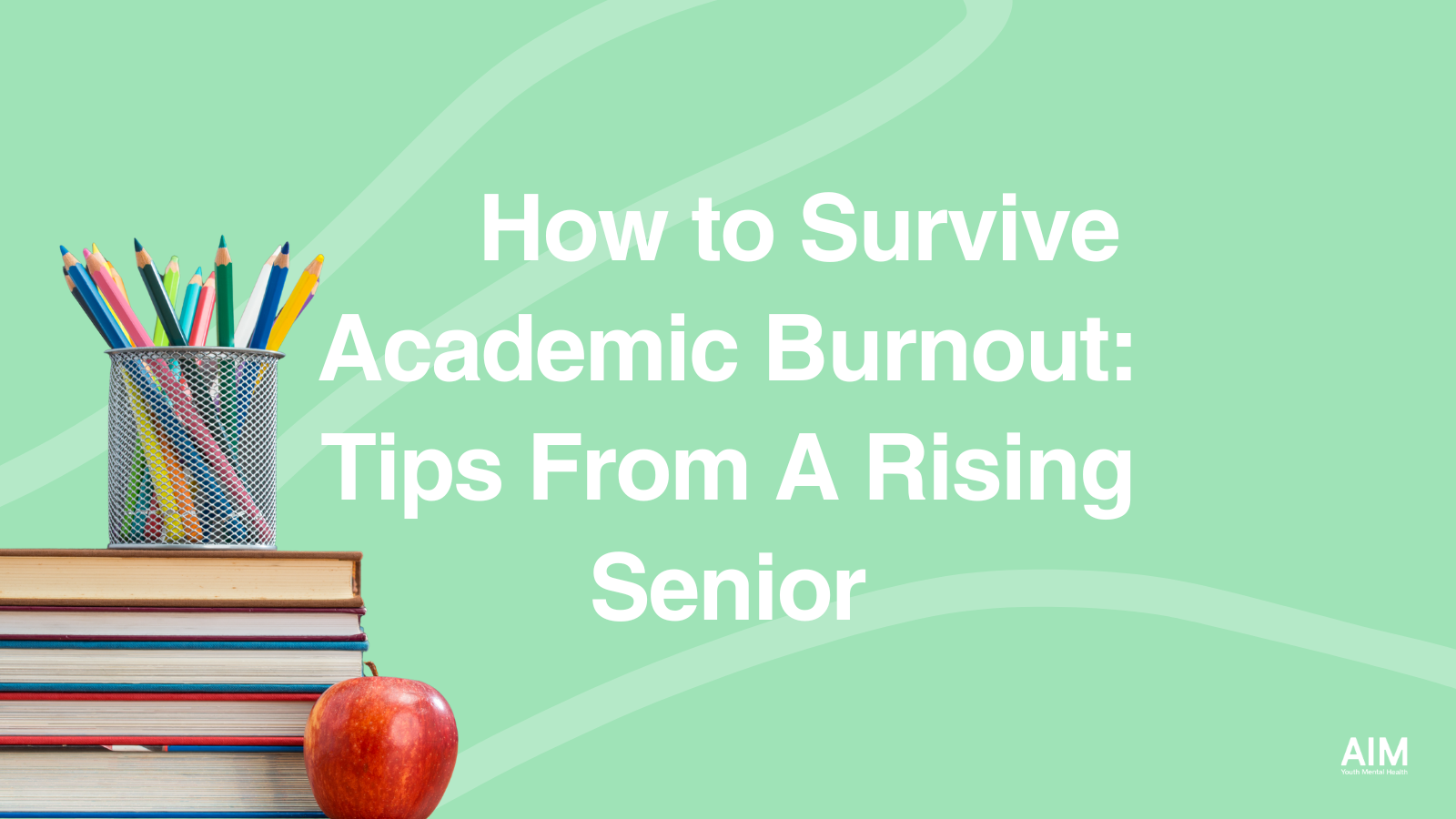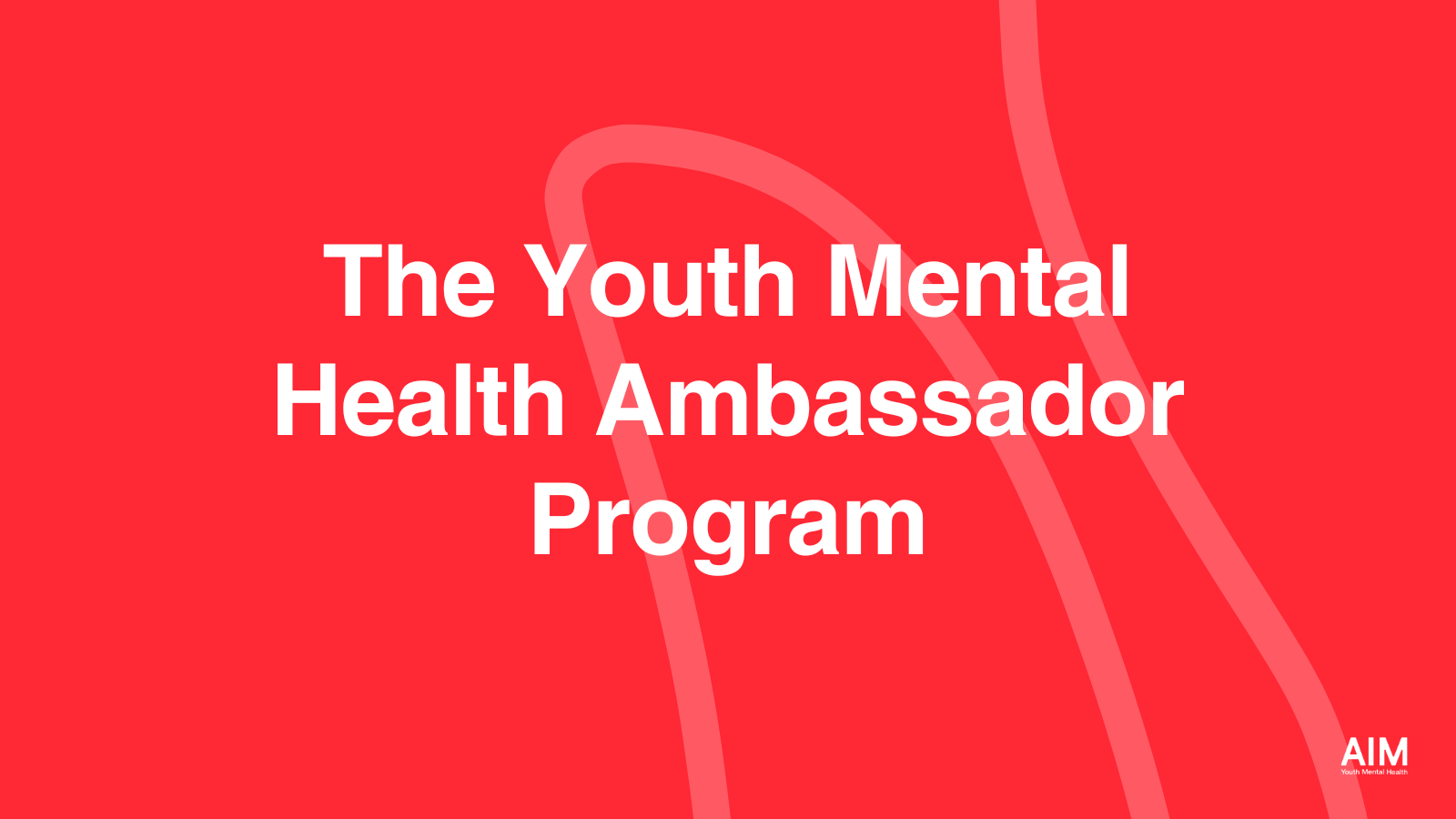“I really wish adults knew that literally any teen, no matter how much they laugh, how good their grades are, or how ‘put together’ they seem, can be struggling.”
By Meadowlark Monaghan, AIM Youth Advisory Board Member
Last week at the AIM Youth Mental Health Symposium, our AIM Ideas Lab youth researchers shared their message to parents, educators, policy makers, researchers, and their community about how to address the youth mental health crisis that is growing in the wake of COVID. The bottom line? Teens want adults to be more considerate of youth mental health and the nuances of their experience… beginning with the understanding that the stress teens face is acting as a barrier to their mental health care.
“I really wish adults knew that literally any teen, no matter how much they laugh, how good their grades are, or how ‘put together’ they seem, can be struggling,” one participant in the peer-to-peer surveysLab shared. The AIM Ideas Lab findings showed that youth mental health is a very important issue for teens and at the same time, teens are experiencing immense pressure from academics that leave them feeling as if they don’t have the time to address their mental health.
While academic pressure and toxic stress can have long-lasting effects, prevention and coping strategies are providing a framework for youth to feel more supported, empowered, and on track to achieve their goals while preserving their mental health. Today, we’re sharing a tangible tool to reframe stress and help teens identify when to lean into academic motivation vs. when to pull back and take time to care for their minds.
Wait, Stress Can Be Good?
One liberating way to understand stress is to know that, to a certain extent, stress can be adaptive. Remember those youthful summers, a long awaited reprieve from the taxing school year that begs you to embrace sinking into the couch and ever-lasting cartoon marathons? When there is no stress to complete an assignment or accomplish a task, it becomes easy to fall into the embrace of comfort until the dishes pile up and the dirty clothes are strewn about our bedrooms. In this case, too little stress equates to too little action.
Now think of the antithesis of those relaxing summers: finals week. When there is an abundant amount of deadlines, tests, or looming anticipation of a never-ending to-do list, our stress becomes overwhelming. Instead of making a game plan, we again, sink into a Netflix marathon or perhaps take a nap, unable to cope with the tasks at hand because we don’t even know where to begin. The stress becomes so great that our actions are (once more) limited.
With too little or too much stress, our performance and productivity go down. But lucky for us, there is a sweet spot for stress.
Introducing: The Stress Curve
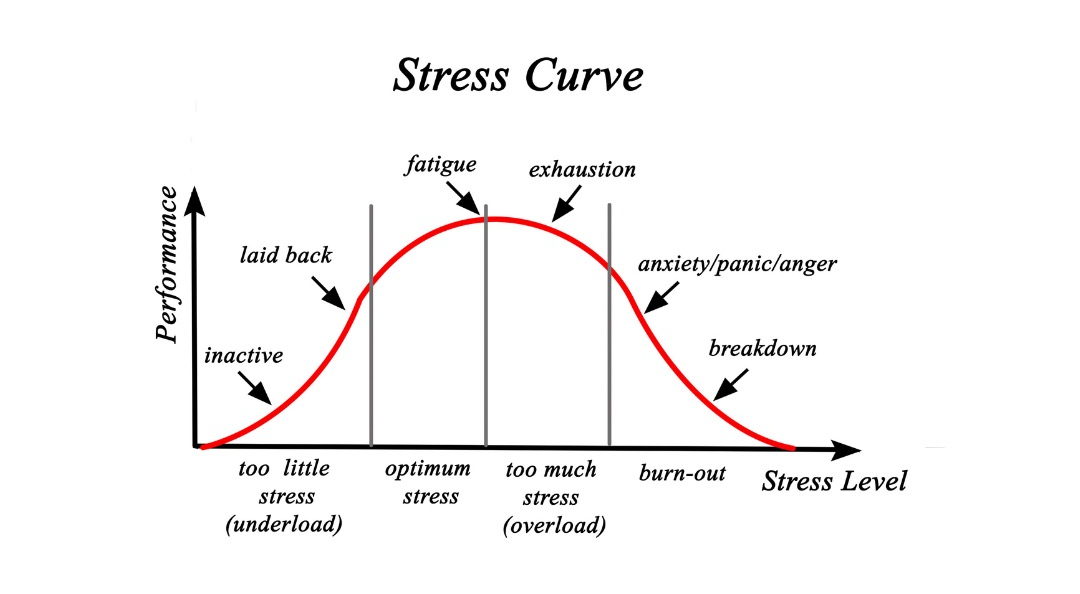
The Stress Curve is a normal, bell-shaped curve that indicates how our stress levels impact our performance. As you can see, with too little or too much stress, we are inactive—stuck somewhere between complacency and laziness or burnt out and in desperate need of implementing some coping strategies. Yet right in the middle – in the sweet spot – is our “optimal level of stress”. That’s right, there is a healthy amount of stress!
In this zone, we have just enough on our plate to light a fire under us to move through the tasks at hand but not enough to become overwhelmed and exhausted. Now, as the AIM Ideas Lab findings show, many teens are living in the overwhelm and burn out end of this stress curve. When we find ourselves there, our way back to the optimal level is through taking some time to cope.
Mental health challenges are as unique as the person experiencing them—meaning, we all have different experiences and therefore, will all cope in different ways. When it comes to approaching caring for your mental health, identifying what coping strategies work for you and structuring the time and space to implement them is imperative. It’s also important to note that sometimes, we wake up and our tried-and-true coping strategies just won’t cut it anymore. That’s normal. The only constant is change; therefore, keeping up with our ever-changing selves requires continuing to make the space for ourselves.
With all that being said, here are some favorite coping strategies to get you out of burn out and back to the optimal level of stress:
- Developing a meditation or breathwork practice
- Spending time in nature
- Connecting with someone who makes you feel safe + supported
- Getting into a flow state (drawing, playing sports, sudoku puzzle, surfing, etc)
- Going for a walk
- Journaling (stream of consciousness writing is great)
- Reading (we love “The Tools” by Phil Stutz & Barry Michels)
- Taking a 10-min stretch break
The Stress Curve not only indicates that some stress is helpful, but also that rest is completely productive—and necessary!—to get back to peak performance. In an effort to display to youth that taking time for mental health care directly supports our ability to keep moving through life’s never-ending tasks, reframing stress in this way can be liberating.
______________________
About the Author
Meadowlark Monaghan (she/hers) is a consultant using her knowledge gained as a mental health professional to act as a liaison between brands, creators, + online communities with the field of psychology and mental health. She also co-hosts the personal development podcast, Thoughts May Vary. Her work has been seen with Madhappy, Local Optimist, The Mayfair Group, Lonely Ghost, AIM Youth Mental Health, NAMI San Diego and more.

